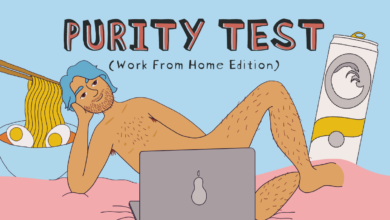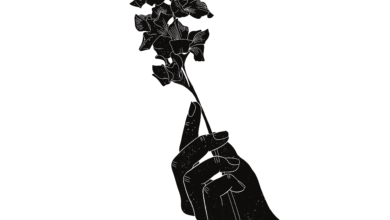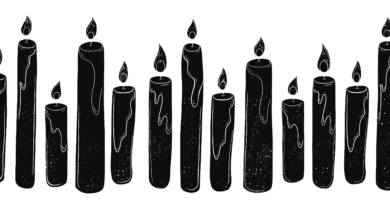 Jillian Connolly
Jillian ConnollyI hate myself. I used to have that thought almost every day; now, it comes a little less frequently. Yet it is only on the rarest of occasions when I think, I love myself.
Most of the time, I try not to think of myself at all. I am quick to pick out flaws in my appearance and in my personality, until I get to the point where I loathe even the smallest things about myself, like the sound of my voice or the way my calves jiggle. This self-dissection is nothing new. The complete and utter dissatisfaction with myself started young and was very strong until I hit high school. Each year, I started to like myself just a little bit more. I made new friends, I did more things that I enjoyed, and I started dressing differently. I thought, I’m not as horrible as I thought I was. But then, as the stress of university (combined with quite a few other issues) culminated in an eating disorder, I was back at square one.
Hating yourself is devastating. It gets to the point when you aren’t necessarily suicidal, but you feel like you have to die because you’re just that awful. No matter how compassionate you are to other people, it’s difficult to extend that same compassion to yourself. It becomes almost preferable to engage in self-destructive behaviours — that’s when self-loathing is at its most dangerous. I felt euphoric when I skipped meals or saw the number on the scale decrease. It became a way for me to have control over my appearance, over something, so despite all the other things I hated about myself, I was skinny and no one could take that away from me.
I didn’t see it at the time, but this way of thinking isn’t healthy. It’s dangerous, it’s unsustainable, and it doesn’t actually help. Hurting yourself to feel better only works in the moment, and could be fatal in the long run, depending on how you choose to hurt yourself. So why did I engage in self-harm? What drove me to see myself this way?
There were probably individual factors at play, but I believe this has something to do with the society we live in. Love involving another person is normalized, but self-love is not. It’s considered normal to hear people tell self-deprecating jokes, but at what point do we start to internalize the jokes? It’s also common to judge people for unabashedly loving themselves. We tell them they’re conceited and self-centred and vain. We punish their celebrations of themselves because it’s gotten to the point where loving yourself is unnatural and outside the status quo.
Self-hatred, or to a lesser extent, dissatisfaction with oneself is incentivized. We are constantly bombarded with advertisements and doctrine that we are not good enough in our natural forms. Instead, we are coerced into buying products to make ourselves more appealing. Cosmetics, diet products, and new clothes are all parts of this. Companies create needs and worries about one’s appearance that didn’t exist before — for instance, the son of Listerine’s founder famously coined the word “halitosis” as a name for bad breath to sell more mouthwash. This is the crux of capitalism. It’s dehumanizing because you’re no longer thought of as a person; instead, you’re thought of as something to sell to, and in order to do that, you must feel the need to buy.
We too eventually come to think of ourselves in this way. We forget that we are human, and instead consider ourselves a product that constantly needs to be improved. Consumerism helps allay feelings of hatred, giving us a small rush each time we buy some new product promising to make us better versions of ourselves. I don’t believe advertisements and capitalism are completely responsible for self-hatred (or eating disorders, which are complex mental illnesses), but I do believe that corporations help create and capitalize on some of our insecurities, magnifying them for the purpose of making money.
On an individual level, it’s so much easier to wallow in negative beliefs rather than challenge them. It’s safer too. It’s safer to think “I’m a failure” than to believe you aren’t and to have that belief challenged by a bad grade, for example. You cannot be deflated if you’re already empty to begin with. Sometimes happiness, or even contentment, can feel so fragile. It can vanish in an instant, leaving you feeling horrible once again, so why risk that loss? It may be easier to live this way, but it’s not desirable.
I have different standards for myself than I do for everyone else, and I don’t think I’m alone in that. Because there’s some distance between yourself and another person, you can more easily make sense of their actions and motivations. You can see that even if they messed up, they’re trying their best. You can be more objective about someone else, but it’s hard to have that same objectivity towards yourself. I have been told to remember that past trauma changed my brain and I need to go easy on myself. I can’t seem to do that though, but I can be so much more compassionate and understanding of how other people’s traumas have affected them.
The journey to self-love is a long and arduous one. It’s difficult to disregard all the negative self-talk that’s been present for years. Even if it doesn’t seem possible to love or even like yourself, just remember that corporations want you to hate yourself and you can’t give them the satisfaction of winning. Loving yourself is radically anti-capitalist. It may not seem like there’s an end in sight, and maybe that’s because there is no end. It’s a constant fight against your own negative perceptions and what those damn capitalists want you to believe so they can sell to you. Even though it’s hard, it’s worth it (from what I’ve heard).




